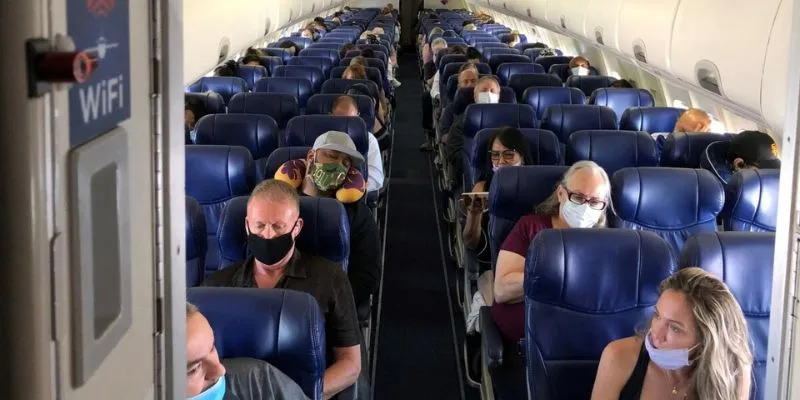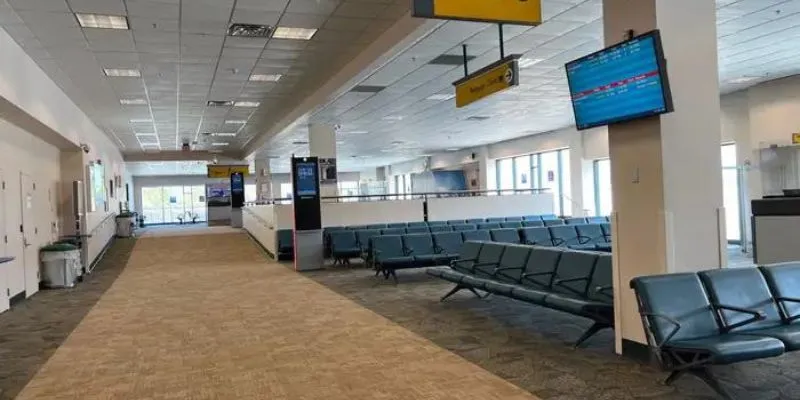Traveling with infants can be very challenging and sometimes worse when your preferred air carrier has no specific measures. Are you eager to know what is Delta Infant Policy? Well, luckily for families, Delta Airlines has simplified the process. According to Delta, children below the age of 2 years are infants, and here they have laid down stringent measures to accommodate the infants during the voyage. However, for passengers bringing infants with them, this travel guide with Delta’s formula for infant policy shall supply you with all the necessary details. Additionally, Delta’s crew ensures that they do all that it takes for you and your baby to have a remarkable flight. So, read every detail carefully and get to know about Delta’s Infant Policy.
What is Delta Infant Policy?
Children below the age of 2 years (24 months) do not need their own seat. However, you should inform Delta Airlines if you intend to carry an infant in your lap. Please also note that carriers cannot hold a lap child if they are under the age of 12. However, an adult is only able to have one lap infant at any one time. When an adult is flying with one or several infants under two years, they should book one seat for each child. However, if you have an approved child restraint device then you can purchase a seat for your infant. For these seats, the Delta offers a low cost. Below are the in-depth details of international and domestic travel options for infants. Kindly read each of them carefully.
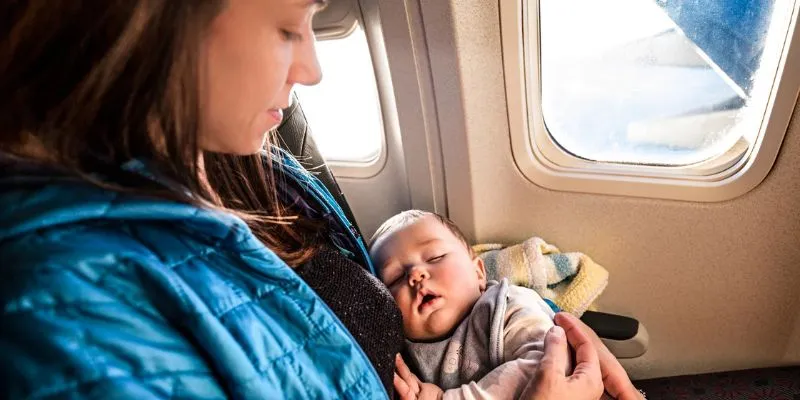
Best Travel Solutions for Infants
Domestic Travel
- Travel in an Adult’s Lap: The airline allows infants to travel within the United States without anyone having to pay for them. Moreover, they can do so on an adult’s lap. But before you do so, you need to notify the airline and add the infant to your booking.
- Travel in a Separate Seat: If you want your infant to have his/her own seat, you will need a seat for your baby and pay extra ticket fees. Additionally, you must bring an FAA-approved child safety seat when traveling with an infant.
International Travel
- Travel in an Adult’s Lap: In commercial flights, an infant can travel on the lap of an adult but a charge of 10% of the cost of an adult fare plus the international levy will have to be paid. Remember always to advise Delta in advance so the infant is included in the ticket.
- Travel in a Separate Seat: If you wish your infant to have their own seat, then you require another ticket plus an approved child safety seat.
Check Contact Details and Locations of all Delta Airlines Offices Globally.
Adding Your Infant to Travel Plans
When traveling with infants below 2 years, you might opt to have the baby travel on your lap for free on domestic flights within the United States. Below is the step-by-step guide to show you how to add an infant-in-arms to your ticket.
1: Visit My Trips website.
2: After, visit the “Special Service Requests” portion and click on the “Open” option.
3: Thirdly, click on the “+” button beside “Request Infant-in-Arms” for the infant’s flight
4: Lastly, fill in all the necessary information and click on the “Confirm” option.
NOTE: If you want to know more about Delta’s Infant Policy, must visit (https://www.delta.com/us/en/children-infant-travel). Here, you’ll get all the information about infant policy.
Flying with Your Infant on Delta – Pieces of Advice
For children under two years, it is advisable to purchase a reserved seat and have an FAA-approved child restraint device in the airplane. Here are some helpful tips for traveling with an infant on Delta:
| Booking Your Trip | It’s recommended that when you are flying with an infant or toddler, you should include some time between the flights for rest as well as feeding or diaper changing time. Pre-planning can also be done using airport maps. So, if you have a layover then you know what to expect. |
| Baggage Items | Regarding carry-on items, the passenger map includes details regarding child restraint seats, strollers, and diaper bags under the guidelines of Infant & Children’s Items. The TSA usually considers essential products such as medicine, breast milk, and baby formula. For further details or to watch videos on flying with infants or on carry-on bags, visit the TSA’s Traveling with Kids. |
| International Flights | If your child is traveling across countries, you will need to ensure that you have the right passport for your child or travel visa too. For detailed information on what documents are necessary at different times in different countries, one should refer to the information provided by the US Department of State for children. |
| Breastfeeding | Breastfeeding on flights as well as in other facilities of Delta is fully endorsed for it is valuable. Passengers are allowed to bring a breast pump on board and most of the airports provide either a private lactation room or an area. You can never go wrong in asking a Delta associate for directions on where to locate one. |
Child Safety Seats: Key Facts Every Parent Should Know
People with infants who require an additional seat and want to use a child restraint seat must follow specific rules regarding safety.
How to Properly Position a Child Safety Seat
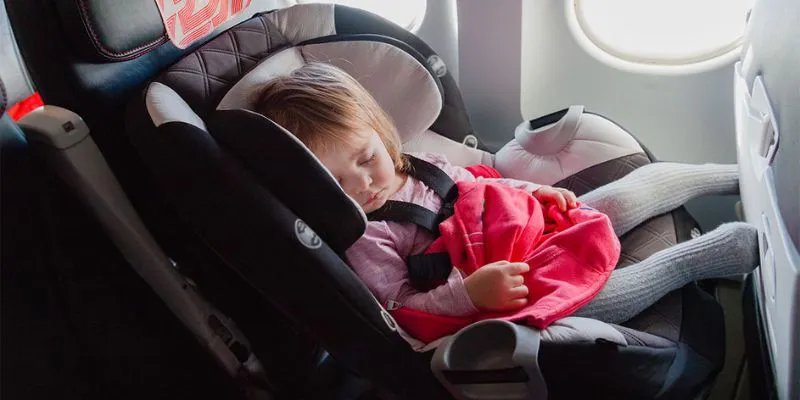
Infants can normally use the window seats that are in child safety seats. They can use other seats too, but they cannot be in the aisle and also cannot be between the other passengers. An adult must be in close proximity to the infant at all times and preferably seated. Also in accordance with FAA regulations, it is unlawful to take a child under the age of two years in a seat installed with an airbag seat belt. Delta Airlines advises against using child safety seats in the following areas:
- Aisle seats
- Emergency exit rows
- If the child safety seat doubles up as a stroller or car seat then it is a bulkhead seat
- Flatbed seats are located in cabins for Delta One on A330-200 and A330-300 planes.
For takeoff and landing, the infant must either sit on the adult’s lap or be restrained using the FAA-approved infant safety harness. Even if the infant is more than a year old and weighs more than 20 pounds. Additionally, please remember that booster-style car seats are not allowed during these phases of the flight.
Key Responsibilities While Traveling with Your Kid
While Delta Airlines staff prioritize your infant’s safety, adults must take several steps to ensure compliance:
- Ensure that you get approval from the FFA about the child safety seat.
- Make sure the seat is in good condition and none of the safety features are locked or broken in any way.
- Ensure that the child does not surpass the manufacturer’s recommended weight for that particular seat.
- As the last step adjust the airplane seatbelt across the child restraint system.
Additional Insights on Traveling with Infants
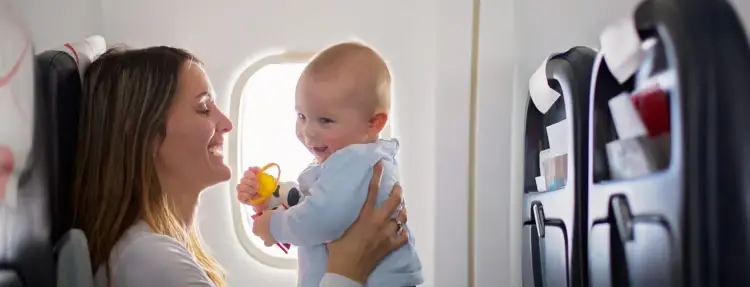
Here are some additional important details to help you navigate Delta Airlines’ infant travel policies:
Travel Abroad
While traveling abroad with your child, it is compulsory to have a passport as well as any other documents for travel. This will depend on the country you visit. The representatives also may ask to provide a travel visa in case you will be traveling to another country. Specific information on which documents are necessary for each particular country might be in the “Special Requirements for Children” on the official website of the U.S. Department of State.
Boarding Steps
Babies and children are often allowed into the plane. Especially, early in an effort to help the families adjust in the best way possible. Delta’s neat arrangements for boarding avoid unnecessary pressure and guarantee that families with small children have a wonderful time.
Nursing Essentials
Delta Airlines does not object to women nursing their babies during any Delta flight, in airport facilities, and on connecting flights. The airline also allows breast pumps when you are packing your carry-on items. To be more helpful, most airports offer private lactation or areas for women. Especially, who wish to be alone with their babies. If you are in doubt about where to find one, do not hesitate to ask any representative from Delta.
Infant Facilities
Delta Airlines has set its goal to make traveling with children as comfortable as possible. However, there are free baby meals on board, and changing tables in lavatories on some flights. These are features to make a journey with an infant comfortable and as enjoyable as possible.
Final Thoughts
Thus, your query is now addressed what is Delta Infant Policy. However, Delta Airlines’ infant policy aims to make your trip with your little one as comfortable as possible. To ensure you have the most tactical time at your destination, acquaint yourself with all the information before traveling to the airport. Even though the above information will serve the majority of your purpose, you can always get in touch with Delta Airlines if you have more questions.
Need Help? Check Our FAQ’s
Your infant may either sit on your lap or in an FAA-approved child safety seat, provided for them.
Yes, you have to report to Delta if you are traveling with an infant even though children below two years (24 months).
Children aged below 2 years can fly for free. But they have to sit on an adult’s lap for domestic airlines. For international travel, children may travel at a cheaper price.
Yes. You can carry baby formula, breast milk, toddler drinks, and baby/toddler meals, in sufficient quantities in containers more than 3.4 ounces(100 milliliters).
However, when making the booking for the adult ticket, you need to include an infant in that particular reservation. The accompanying adult of the infant will be checked in for the flight automatically.
Most doctors advise people to wait for at least one week after giving birth before they start traveling by air. Some also recommend that the child should not take any airplane flights during the first six months of life.
